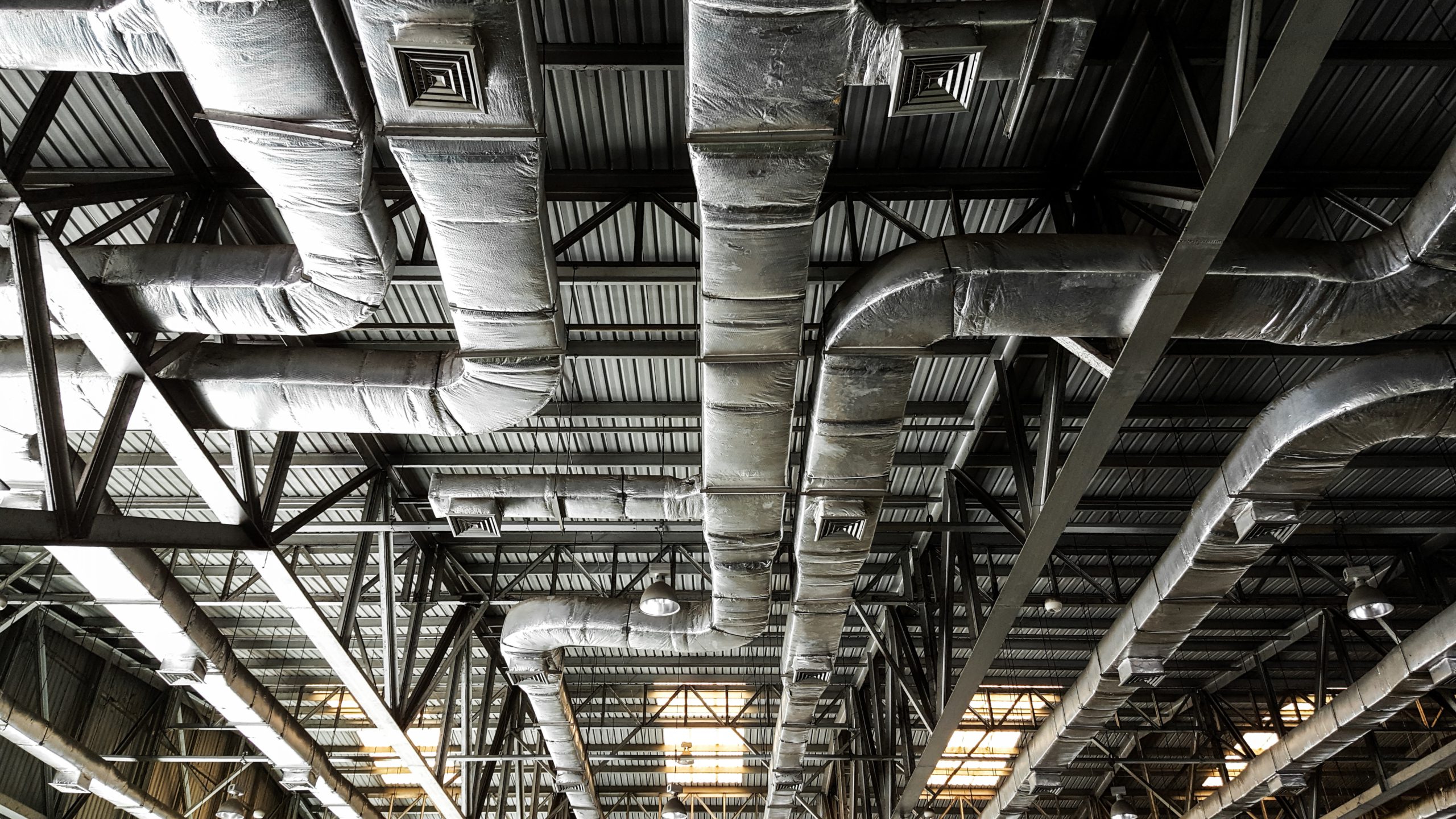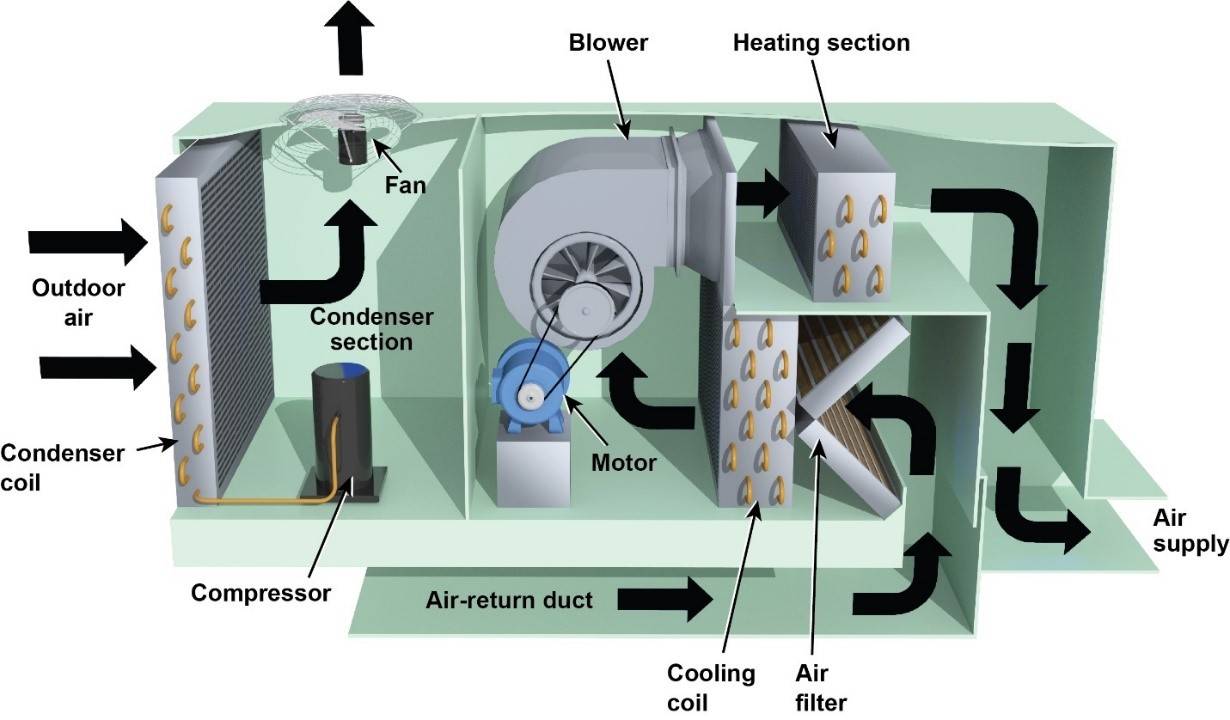An In-Depth Consider Cooling And Heating Providers and Their Influence On Power Efficiency and Price Financial Savings
The duty of HVAC solutions in boosting energy efficiency and achieving price financial savings is a lot more important than ever before, as businesses and homeowners seek sustainable remedies in an increasingly eco-conscious world. With technological improvements like clever thermostats and high-efficiency components, the possibility for maximizing system efficiency is substantial. Yet, real impact of these innovations depends greatly on regular maintenance and proactive problem administration. As we discover the complex connection between a/c systems and operational prices, consisting of the shift in the direction of eco-friendly choices, the inquiry emerges: just how can these approaches be effectively carried out to make the most of both eco-friendly and financial benefits?

Value of Heating And Cooling Equipments
heating and cooling systems are a vital component of modern-day buildings, playing a critical duty in maintaining healthy and balanced and comfy interior settings. These systems, including air, ventilation, and home heating conditioning, are important for controling temperature, moisture, and air top quality, therefore making sure the wellness of owners. Efficient heating and cooling systems contribute considerably to creating an optimal indoor climate, which is critical for both business and property areas.
In commercial structures, HVAC systems are essential to supplying a risk-free and effective setting. By regulating indoor environment problems, these systems help protect against the growth of mold and mildew and the spread of air-borne impurities, thus guarding the health and wellness of workers and clients. Furthermore, in property settings, HVAC systems enhance living conditions by offering constant thermal convenience and enhancing interior air top quality, which is crucial for total health and wellness.
Additionally, the design and maintenance of heating and cooling systems have a straight impact on energy intake and operational costs. Correctly developed and kept systems can significantly reduce power usage, causing reduced utility expenses and a smaller carbon impact. The performance of these systems therefore plays a vital function in advertising sustainability and power conservation within buildings, highlighting their significance in the modern architectural landscape.
Breakthroughs in HVAC Technology
Advancement in a/c innovation is revolutionizing the means buildings take care of interior environments, introducing a new age of effectiveness and control. Recent advancements have actually concentrated on maximizing energy consumption while enhancing customer comfort. One significant growth is the integration of wise thermostats, which make use of fabricated knowledge to learn tenancy patterns and change temperatures as necessary, lowering unnecessary power usage.
Variable Refrigerant Circulation (VRF) systems stand for an additional substantial jump forward. These systems allow for accurate temperature level control in various zones of a structure, boosting comfort and minimizing energy waste. VRF technology is especially useful for big business areas, supplying flexibility and scalability.
Furthermore, the introduction of Net of Points (IoT) tools has actually transformed a/c systems into interconnected networks with the ability of real-time data collection and analysis. This connection makes it possible for predictive upkeep, making certain systems operate at peak efficiency and decreasing unforeseen downtime.
Furthermore, advancements in materials and layout, such as using high-efficiency coils and compressors, have improved general system performance - Heating Contractor. The fostering of ecologically pleasant cooling agents also emphasizes the market's commitment to sustainability
These technological advancements my link are critical in lowering functional costs and environmental impact, establishing new requirements for building environment management.
HVAC Maintenance and Efficiency
Making certain optimum efficiency of heating and cooling systems prolongs beyond technological improvements; it additionally depends upon reliable maintenance techniques. Normal maintenance is vital for sustaining efficiency, minimizing power intake, and expanding the life span of HVAC systems. The main goal is to ensure that all parts work at their peak possibility, therefore lessening energy waste and preserving constant interior comfort levels.
Routine maintenance tasks, such as cleaning or replacing air filters, inspecting cooling agent levels, and checking ductwork for leakages, are essential for avoiding unnecessary stress on the system. Unclean or stopped up filters can block air flow, causing the system to function more difficult and consume even more power. Also, insufficient refrigerant levels can reduce cooling down efficiency, resulting in greater functional expenses.
In addition, periodic inspections by qualified experts can identify possible issues prior to they rise into costly repair work or system failures. These examinations frequently include inspecting electrical connections, adjusting thermostats, and making sure the general stability of the cooling and heating system. By resolving minor troubles early, companies and home owners can avoid unexpected breakdowns and improve energy efficiency.
Cost-Effective A/c Solutions
For those aiming to get the most out of their heating, ventilation, and air conditioning systems without breaking the bank, exploring cost-efficient HVAC solutions can make a considerable difference. One instant measure is to spend in programmable thermostats, which permit individuals to establish certain temperature levels for different times of the day, optimizing energy usage and minimizing unnecessary intake. By automating temperature adjustments, homeowners can attain significant cost savings on power expenses.
Routine maintenance is another vital element of cost-effective heating and cooling management. Making certain that filters are cleaned up or changed regularly, ductwork is sealed, and devices are serviced by professionals can avoid pricey repair services and enhance system long life. Preventative maintenance not just keeps system effectiveness however likewise aids in avoiding unanticipated malfunctions that can bring about costly emergency situation repair services.
Additionally, retrofitting existing systems with energy-efficient elements, such as variable speed motors or high-efficiency compressors, can be a prudent financial investment. These upgrades boost operational performance, minimize power usage, and can often be executed at a fraction of the expense of a full system replacement.
Ecological Impact Reduction
Reducing the ecological impact of HVAC systems is vital in today's search of lasting living. Cooling and heating systems are significant contributors to energy consumption, making up virtually 40% of energy usage in industrial buildings. This energy need usually counts on nonrenewable fuel sources, leading to greenhouse gas discharges and environmental degradation. Transitioning to a lot more effective systems, such as those making use of sustainable power sources, can significantly mitigate these impacts.
Technological advancements in cooling and heating layout and operation, consisting of the integration of smart thermostats and energy-efficient heatpump, are critical in reducing carbon impacts. Check Out Your URL These advancements allow for maximized energy use, lessening wastage and boosting general system performance. In addition, embracing routine maintenance methods guarantees a/c systems operate at peak efficiency, more cutting unneeded power intake.
In addition, using environmentally pleasant refrigerants is important, as traditional cooling agents, like CFCs and HCFCs, have actually been phased out because of their ozone-depleting residential properties. Modern choices, such you could try here as hydrofluoroolefins (HFOs), offer reduced ecological dangers, lining up with international ecological methods. By welcoming these lasting practices, HVAC solutions can play a transformative role in reducing environmental impacts, promoting power efficiency, and promoting a more lasting future.
Final Thought

Furthermore, the style and maintenance of A/c systems have a direct influence on power intake and operational prices. Regular maintenance is important for maintaining effectiveness, decreasing energy intake, and expanding the life period of HVAC systems. HVAC systems are significant factors to energy usage, accounting for nearly 40% of power use in industrial buildings. Additionally, taking on regular maintenance practices guarantees HVAC systems run at peak efficiency, further reducing unnecessary energy consumption.
The transition to environmentally friendly Cooling and heating systems additionally advertises and decreases functional prices sustainability. (Heating Contractor)